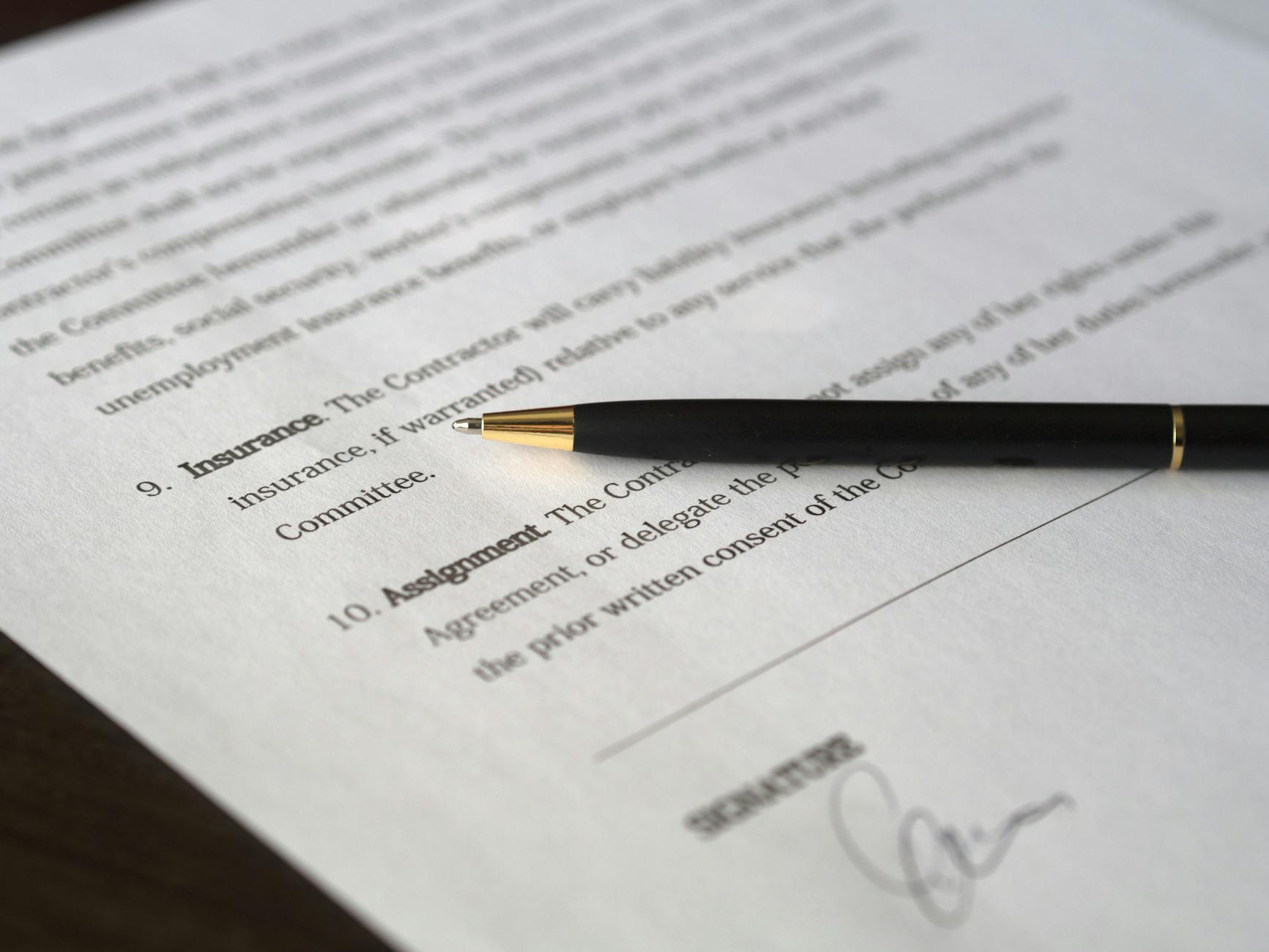What to Do if Your Insurance Claim is Denied: A Step-by-Step Guide
Insurance claim denials can feel frustrating and bewildering. If you’ve ever faced this issue, you know how discouraging it can be. But don’t worry—there are steps you can take to get back on track.
In this guide, we’ll break down the practical actions you can follow if your claim is denied. You’ll learn why claims are often rejected and how to appeal those decisions effectively. Knowing your options can help restore your peace of mind and potentially secure the coverage you deserve.
Whether it’s a health insurance claim or another type of policy, you’ll want to be prepared. By addressing your denied claim promptly and correctly, you can turn things around. Let’s explore how to tackle this challenge together.
For more insights, check out this helpful video: What to do When an Insurance Company Denies Your Claim.
Understanding Insurance Claims
Insurance claims are requests made to an insurance company for compensation or coverage for a loss or expense. They serve as a critical mechanism through which policyholders can recover financially after unexpected events. Depending on the type of insurance, the claims process may differ significantly. Below, we delve into the various types of insurance claims and the general process one should expect when filing a claim.
Types of Insurance Claims
Insurance covers a wide range of life situations, providing peace of mind when things go wrong. The main types of insurance claims include:
- Health Insurance Claims: These arise from medical expenses incurred by the insured. They can cover hospital stays, doctor visits, surgeries, and prescriptions.
- Auto Insurance Claims: These relate to damages sustained by vehicles from accidents, vandalism, or theft. Coverage can include collision and comprehensive claims.
- Home Insurance Claims: Homeowners can file claims for damages caused by disasters like fires, floods, or theft. These claims often cover both the structure and personal belongings.
- Life Insurance Claims: When a policyholder passes away, beneficiaries file life insurance claims to receive the policy’s benefits.
If you want to explore more about different types of insurance claims, check this link.
The Claims Process
Understanding the insurance claims process is essential for successful filing. Although details can vary by provider and policy, here are the typical steps involved:
- Filing the Claim: The first step is to notify your insurance company about the loss. This usually involves an official report and any necessary forms.
- Claim Review: The insurance adjuster will review your claim, asking questions and gathering all pertinent information. They may require documentation such as photos, receipts, or police reports.
- Investigation: Once the claim is filed, the insurer will investigate the details. They validate the claim based on the evidence provided and the policy terms.
- Decision: After the investigation, the insurance company will make a determination. They will either approve the claim for payment or deny it based on their findings.
- Payment: If approved, your insurer will issue payment for the covered losses. If denied, you should review the reasons and consider appealing if you believe the decision was unjust.
For more detailed insights into the claims process, you can read here: The insurance claims process.
Understanding these essential aspects of insurance claims can put you in a better position when dealing with a denied claim. By knowing what types of claims exist and the process involved, you equip yourself to act effectively and reclaim what you’re entitled to.
Common Reasons for Claim Denial
Facing a claim denial is frustrating, but understanding why it happens can help you avoid future pitfalls. Insurance claims can get rejected for several reasons. Here are some common factors that may lead to a denial.
Incomplete Information
One of the leading causes of claim denials is incomplete information. When you submit a claim, you need to provide all necessary documents and details. Missing paperwork or not filling forms correctly can lead insurers to deny your claim. This can include everything from failing to provide receipts to not documenting the loss adequately. It’s crucial to double-check everything before you submit your claim to ensure you have everything required.
For example, an auto insurance claim may be denied if you forget to include a police report from an accident. Always provide comprehensive information to minimize the chance of denial. You can learn more about this issue from The Zebra.
Policy Exclusions
Understand that not every type of damage or situation is covered under your policy. Insurance policies often have specific exclusions; that is, they detail what is not covered. This may include things like wear and tear, certain natural disasters, or specific types of damage.
For instance, if your home is damaged by flooding, but your homeowners’ policy doesn’t cover flood damage, your claim is likely to be denied. Familiarizing yourself with your policy exclusions can save you from unpleasant surprises during the claims process. Find out more about this topic at Thimble.
Late Filing
Each insurance policy has a timeline for filing claims, often referred to as the “prompt notice” requirement. If you wait too long to file your claim, it may be denied. Timeliness is essential here—insurers expect you to report incidents as soon as possible.
For instance, if you file a health insurance claim months after your medical treatment, the insurance company may deem it invalid due to the delay. To avoid this, always check your policy’s timelines and adhere to them. More details can be found in this Healthy Steps article.
Lapsed Policy
Having an inactive or lapsed insurance policy is another reason for denial. If you’ve missed payments or let your coverage expire, your claims will not be honored. Always keep track of your payment schedules and ensure your policy remains active to avoid this issue.
If you attempt to file a claim after your policy has lapsed, the insurer will deny it outright. It’s vital to monitor your insurance status regularly. To better understand this aspect, refer to insights shared by NJM.

Photo by Kindel Media
Keeping these common reasons for claim denials in mind can help you prepare better, ensuring that your insurance experience is smoother and more straightforward.
Initial Steps After a Claim is Denied
Receiving a denial letter from your insurance company can be disheartening. However, understanding what to do next can guide you toward resolving the issue. Here’s what you need to prioritize:
Review the Denial Letter
Start by carefully reading the denial letter. This document contains crucial details about why your claim was rejected. Look for specific reasons outlined by the insurer.
Here’s what to focus on:
- Exact Reason for Denial: Insurers usually provide a reason, whether it’s due to policy exclusions, insufficient documentation, or a missed deadline.
- Policy Reference: The letter should link the rejection to your policy terms. Familiarizing yourself with these terms will help you understand if the denial was valid.
- Documentation Requirements: Review any additional documents needed for an appeal. Knowing what’s missing can prepare you for the next steps.
- Time Limits for Appeals: There’s often a time frame in which you must file an appeal. Take note of these dates to avoid delays.
For further insights on appealing an insurance decision, you can check this resource: How to appeal an insurance company decision.
Contact Your Insurance Company
Don’t hesitate to reach out to your insurance company, especially the claims adjuster assigned to your case. This step is vital for getting clarity and understanding your options.
When contacting them, consider these pointers:
- Prepare Questions: Draft specific questions about the denial. This ensures you cover everything you need to ask.
- Gather Documentation: Have your policy, the denial letter, and any relevant documents on hand to facilitate the discussion.
- Take Notes: Record any information or instructions they provide. This can help you navigate the appeal process more effectively.
- Stay Professional: Approach this conversation calmly. Clear communication can lead to better outcomes.
For more detailed guidance on the steps to take, refer to this article: Where to Start if Insurance Has Denied Your Service.

Photo by Mikhail Nilov
These initial steps are essential in taking control of the situation after a claim denial. By reviewing your denial letter and reaching out for clarification, you position yourself well for the appeals process.
Preparing for an Appeal
When your insurance claim is denied, preparing for an appeal is crucial. This step can feel daunting, but with the right approach, you can increase your chances of a successful outcome. Here are two key components to focus on: gathering supporting documentation and drafting an appeal letter.
Gather Supporting Documentation
To strengthen your appeal, compile all necessary documents related to your claim. A well-organized set of materials can support your case effectively. Here’s what to include:
- Claim Denial Letter: Keep the original letter that outlines the reasons for the denial. Reference this in your appeal to address specific issues mentioned.
- Policy Documents: Gather your insurance policy to show coverage specifics that relate to your claim. This can clarify any misunderstandings.
- Medical Records: If your claim relates to health services, include relevant medical records, treatment plans, and prescriptions. This evidence highlights the necessity and appropriateness of your care.
- Invoices and Receipts: Provide documentation of all related costs, including bills and receipts, to illustrate the expenses incurred.
- Correspondence: Keep a record of all communications with your insurance company. This includes emails, phone call notes, or any interactions that may pertain to your case.
- Expert Opinions: If applicable, gather statements from professionals who can offer insights supporting your claim. This might include medical experts for health claims or appraisers for property claims.
Being thorough in your documentation can make a significant difference. For further detailed steps on preparing for the appeals process, check this resource.
Drafting an Appeal Letter
Your appeal letter is your chance to argue your case directly. Following some key guidelines can help ensure the letter is compelling and well-structured:
- Start with a Clear Heading: Include your name, policy number, date, and the address of the insurance company. This ensures your appeal reaches the right desk.
- Be Direct and Concise: Start with a statement of appeal, clearly indicating that you wish to contest the denial. Use strong, confident language.
- Detail Your Argument: Reference specific policy clauses that relate to your claim. Be precise about why you believe the denial was unwarranted.
- Include Supporting Documents: Mention the documents you’re enclosing with your letter. This showcases your preparedness and diligence.
- Express Your Need: Explain briefly why the claim is crucial to you or your family. Personal stories can create an emotional connection but keep it professional.
- Request a Review: Conclude by asking for a reevaluation of your claim. Be polite, yet firm in your request for a response.
For examples and additional advice on appealing insurance decisions, visit this article.

Photo by Pixabay
Carefully preparing your documentation and crafting a well-structured appeal letter increases your chances of getting a fair re-evaluation of your denied claim.
Filing the Appeal
If your insurance claim is denied, filing an appeal is a crucial step to pursue. This process can seem intimidating, but knowing what to expect can simplify it significantly. You’ll primarily engage in two types of appeals: the internal appeal process and external review options.
Internal Appeal Process
When you decide to go for an internal appeal, you’re essentially asking your insurance company to review its decision. Here’s what you can generally expect during the internal appeal process:
- Request Submission: Begin by writing an appeal letter that outlines your reasons for contesting the denial. Ensure you include pertinent details like your name, insurance policy number, and claim number. You might also reference specific sections of your policy that support your case.
- Review Timeline: Insurers have a set timeframe within which they must respond to your internal appeal. Typically, they will notify you about this during your initial dealings with them. Be sure to ask for these timelines if they aren’t provided.
- Documentation Gathering: You may need to supply additional documentation or evidence that strengthens your claim. This can include medical records, receipts, or other information relevant to your case.
- Decision Notification: Once the company reviews your appeal, they’ll notify you of their decision. The response may either reverse the initial denial or reaffirm it. If they stand by the denial, they will provide detailed reasons for this.
For more comprehensive details about the internal appeal process, check out this resource.
External Review Options
If your internal appeal is denied, you have the right to seek an external review. This allows an independent third party to evaluate your insurer’s decision without bias. Here’s how the external review process generally unfolds:
- Requesting a Review: You’ll need to file a request for an external review. This usually involves settling any necessary forms and ensuring you meet the applicable deadlines.
- Reviewing Decisions: An external reviewer assesses the reasons for your insurance company’s denial. They will rely on the evidence presented and the relevant policy terms to form their judgment.
- Timeframe for Decision: External reviews typically have a faster turnaround, often limited to a 72-hour window, particularly if your case has medical urgency.
- Outcome Notification: After evaluation, the third-party reviewer will inform you of their decision, which is binding for the insurance company. They must abide by this determination and take appropriate actions, whether it means approving your claim or explaining why it remains denied.
For further details on external review options, visit this link: External Review.

Photo by Mikhail Nilov
Understanding these processes empowers you to challenge insurance decisions effectively. Both internal and external reviews offer avenues for recourse when facing a denial, helping you pursue the benefits you deserve.
When to Seek Legal Help
Navigating the complexities of insurance claims can be challenging. Sometimes, when you face a denial, seeking legal help is crucial. In this section, we’ll explore situations when legal assistance becomes necessary and how to find an attorney who specializes in insurance claims.
Identifying Complex Denials
Legal help often becomes essential in complex cases involving insurance denials. Here are a few scenarios where hiring an attorney is wise:
- Multiple Denials: If you’ve faced repeated denials from your insurance company for the same claim, it may be time to consult a legal expert. This shows a more systemic issue that requires professional intervention.
- Severe Losses: In cases where the financial stakes are high, such as significant property damage or serious injuries, legal representation ensures that your rights are adequately protected.
- Policy Misunderstandings: Sometimes, claim denials relate to misunderstandings about the policy terms. If you believe your insurer is applying policy exclusions incorrectly, legal assistance might be needed to clarify your rights.
- Fraud or Bad Faith: If you suspect your insurer is acting in bad faith or engaging in fraudulent practices, legal representation is critical for navigating the dispute.
- Long Delays: Persistent delays in claim processing warrant legal support. If your insurer is unresponsive or evasive about your claim status, consider consulting an attorney who can expedite the process.
For further analysis on when to hire an attorney, view this resource.
Finding a Specialized Attorney
Finding an attorney who specializes in insurance claims can significantly influence your case’s outcome. Here are practical tips to consider when searching for the right legal representation:
- Research: Begin with online searches for attorneys specializing in insurance claims. Look for local attorneys with stellar reviews and a strong track record in insurance disputes. Websites like Justia can help you compare lawyers here.
- Consult Referrals: Ask friends, family, or colleagues for personal recommendations. Often, first-hand experiences can shed light on a lawyer’s effectiveness in handling insurance cases.
- Check Credentials: Before hiring, verify their qualifications. Look for attorneys who are members of professional organizations, such as The American Bar Association or the National Association of Insurance Commissioners.
- Schedule Consultations: Take advantage of free consultations that many attorneys offer. Use this time to discuss your case and ask specific questions about their approach and fees.
- Assess Comfort Level: Choose an attorney you feel comfortable with. Your legal representative should be someone who communicates clearly and respects your decisions.
For a comprehensive overview of hiring insurance claim attorneys, check out this source: Hiring an Attorney for an Insurance Claim.

Photo by Kampus Production
By understanding when to seek legal help and navigating the process of finding a specialized attorney, you empower yourself to fight for the compensation you deserve effectively.
Preventing Future Denials
Understanding what leads to claim denials is the first step to prevent them in the future. By taking proactive measures, you can effectively reduce the likelihood of facing denials that may disrupt your finances and peace of mind.
Understanding Your Policy
Knowing your insurance policy inside and out is vital. A comprehensive understanding helps you navigate potential pitfalls. Here’s how to get started:
- Read Everything: Skim through your policy, focusing on coverage limits, exclusions, and renewal terms.
- Highlight Important Sections: Mark any areas that describe what’s covered and what’s not. This can clarify your rights in tricky situations.
- Ask Questions: Don’t hesitate to contact your insurance provider with questions. Clarity on policy details can eliminate confusion later.
- Stay Updated: Policies can change. Regularly review your coverage to ensure it still meets your needs.
You can read more about how to read your insurance policy for detailed insights.

Photo by Andrea Piacquadio
Regular Communication with Insurers
Open lines of communication with your insurance provider play a crucial role in keeping your claims on track. Here’s how to foster effective communication:
- Check Your Coverage: Before any treatment or significant expense, verify what’s covered. It prevents surprises when you submit claims.
- Document Conversations: Keep notes from every conversation with your insurers. This includes dates, times, names, and the content discussed.
- Follow Up Regularly: Stay on top of your claims. Regular check-ins can expedite the process and ensure your claims don’t get lost in the shuffle.
- Be Proactive: If you anticipate potential claims, reach out to your insurer beforehand. They can guide you on the necessary steps and required documents.
Interested in strategies to minimize future claim denials? Check out this article on effective strategies to minimize claim denials.
Maintaining a solid understanding of your policy and keeping lines of communication open with your insurer can substantially reduce the chances of future claim denials.
Conclusion
Facing a denied insurance claim can be stressful, but knowing how to respond can make a difference. Review your denial letter carefully to understand the reasons behind the decision.
Take the time to gather supporting documents and prepare a compelling appeal letter. Reach out to your insurer for clarity, as this can provide valuable insights into your next steps.
Empower yourself by knowing your rights and the appeals process. Don’t hesitate to seek legal help when necessary. By staying informed and proactive, you can improve your chances of obtaining the compensation you deserve.
Have you experienced a claim denial? Share your thoughts and experiences below!